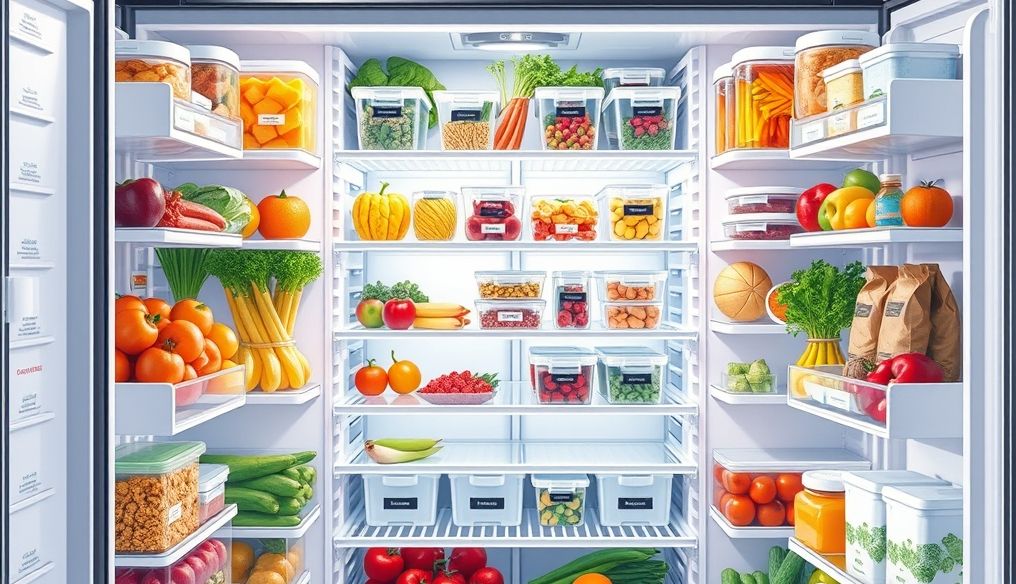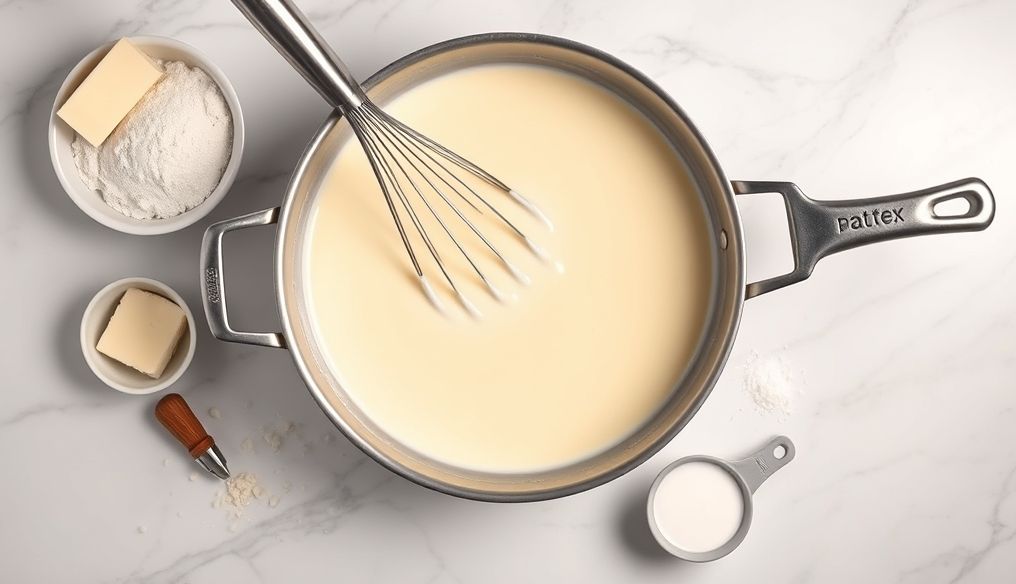Introduction: Why is Refrigerator Organization Important?
Did you know that a significant portion of the food we buy ends up in the trash? Often, the reason is poor refrigerator organization, leading to forgotten food, premature spoilage, or not using it before its expiration date. Organizing your refrigerator is not just about arranging food; it's a smart strategy for maintaining your health, saving money, and reducing food waste.
In this article, we will explore the best ways to organize your refrigerator, from pre-planning to regular maintenance, focusing on practical tips that you can easily apply in your daily life.
1. Pre-Planning: The Foundation of Effective Organization
Before going to the store, plan your weekly meals. This helps you buy the right amounts of food and avoid purchasing what you don't need.
- Inventory the Refrigerator: Before writing a shopping list, check the contents of the refrigerator. Use what is already available to avoid duplication and waste.
- Organized Shopping List: Divide the shopping list into categories (vegetables, fruits, meats, dairy) to facilitate the shopping process and ensure that nothing is forgotten.
- Buy Appropriate Quantities: Avoid buying large quantities of perishable foods if you don't plan to use them soon.
2. Dividing the Refrigerator into Specific Zones
Each part of the refrigerator has a different temperature. Take advantage of these differences to store food in the appropriate places to keep it fresh for as long as possible.
Where to Place Each Type of Food?
- Top Shelves: Ideal for ready-to-eat foods such as cheeses, yogurt, and beverages.
- Middle Shelves: Suitable for storing leftovers, cooked foods, and processed meats.
- Bottom Shelves: The coldest in the refrigerator, so they are best for storing raw meats, poultry, and fish. Place them in airtight containers to prevent leakage and contamination of other foods.
- Drawers: Dedicated to vegetables and fruits. Make sure to remove wilted or damaged leaves to prevent the spread of spoilage to the rest of the vegetables and fruits.
- Refrigerator Door: The warmest part, so use it to store foods that do not require intense refrigeration, such as sauces, juices, and jams.
3. Using Appropriate Containers
Suitable containers help keep food fresh longer and prevent the spread of odors.
- Airtight Containers: Ideal for storing leftovers, cooked meats, and chopped vegetables.
- Reusable Storage Bags: Suitable for storing small fruits and vegetables.
- Plastic Wraps: Can be used to cover dishes and bowls, but make sure they are tightly sealed.
4. Noting Expiration Dates
Tracking the expiration dates of food in the refrigerator helps you use them before they spoil.
- Labeling: Use labels to write the date of opening the package or the expiration date.
- Arranging Food: Place foods that are nearing expiration in the front to remember to use them first.
5. Regular Refrigerator Cleaning
Cleaning the refrigerator regularly helps prevent the growth of bacteria and fungi and keeps the refrigerator smelling fresh.
- Weekly Cleaning: Wipe the shelves and drawers with a damp cloth and mild detergent.
- Deep Monthly Cleaning: Remove all food from the refrigerator and clean it thoroughly with soap and water. Rinse well and dry before returning the food.
- Disposing of Spoiled Food: Dispose of any spoiled or expired food immediately.
6. Controlling Refrigerator Temperature
Make sure the refrigerator temperature is suitable for keeping food fresh. The temperature should be between 1 and 4 degrees Celsius (34 and 40 degrees Fahrenheit).
- Using a Refrigerator Thermometer: Place a thermometer in the refrigerator to monitor the temperature regularly.
- Adjusting Refrigerator Settings: If the temperature is not suitable, adjust the refrigerator settings accordingly.
7. Handling Leftovers Wisely
Leftovers can be a delicious meal the next day, but they should be handled with care.
- Cool Leftovers Quickly: Place leftovers in airtight containers and refrigerate them within two hours of cooking.
- Use Leftovers Within 3-4 Days: Do not keep leftovers in the refrigerator for more than 3-4 days.
- Reheating Leftovers Properly: Make sure that leftovers reach an internal temperature of 74 degrees Celsius (165 degrees Fahrenheit) when reheating.
8. Utilizing the Freezer Effectively
The freezer is your ally in keeping food longer. You can freeze many foods, including vegetables, fruits, meats, and bread.
- Freezing Food in Small Portions: Freeze food in small portions to make it easier to use later.
- Using Freezer Bags or Appropriate Containers: Make sure the bags or containers are airtight to prevent freezer burn.
- Noting the Freezing Date: Write the freezing date on the bags or containers to track the food's shelf life.
9. Additional Tips to Avoid Food Waste
- Learn How to Store Vegetables and Fruits Properly: Some vegetables and fruits last longer when stored at room temperature, while others need refrigeration.
- Use Vegetable and Fruit Peels to Make Broth: Don't throw away vegetable and fruit peels. Use them to make a delicious and nutritious broth.
- Create New Meals from Leftovers: Be creative and use leftovers to create new and innovative meals.
- Donate Excess Food: If you have excess food that you cannot use, donate it to local charities.
10. Benefits of Organizing the Refrigerator
Organizing the refrigerator is not just a routine task, but an investment in your health, money, and environment.
- Saving Money: By reducing food waste, you will save money spent on buying food that ends up in the trash.
- Improving Health: By eating fresh and healthy foods, you will improve your overall health and reduce the risk of disease.
- Protecting the Environment: By reducing food waste, you will contribute to protecting the environment and reducing greenhouse gas emissions.
- Saving Time: By organizing the refrigerator, you will save time spent searching for food or cleaning the refrigerator.
Conclusion
Organizing the refrigerator is a simple habit that can make a big difference in your life. Start applying these tips today and enjoy the benefits of an organized and efficient refrigerator.




